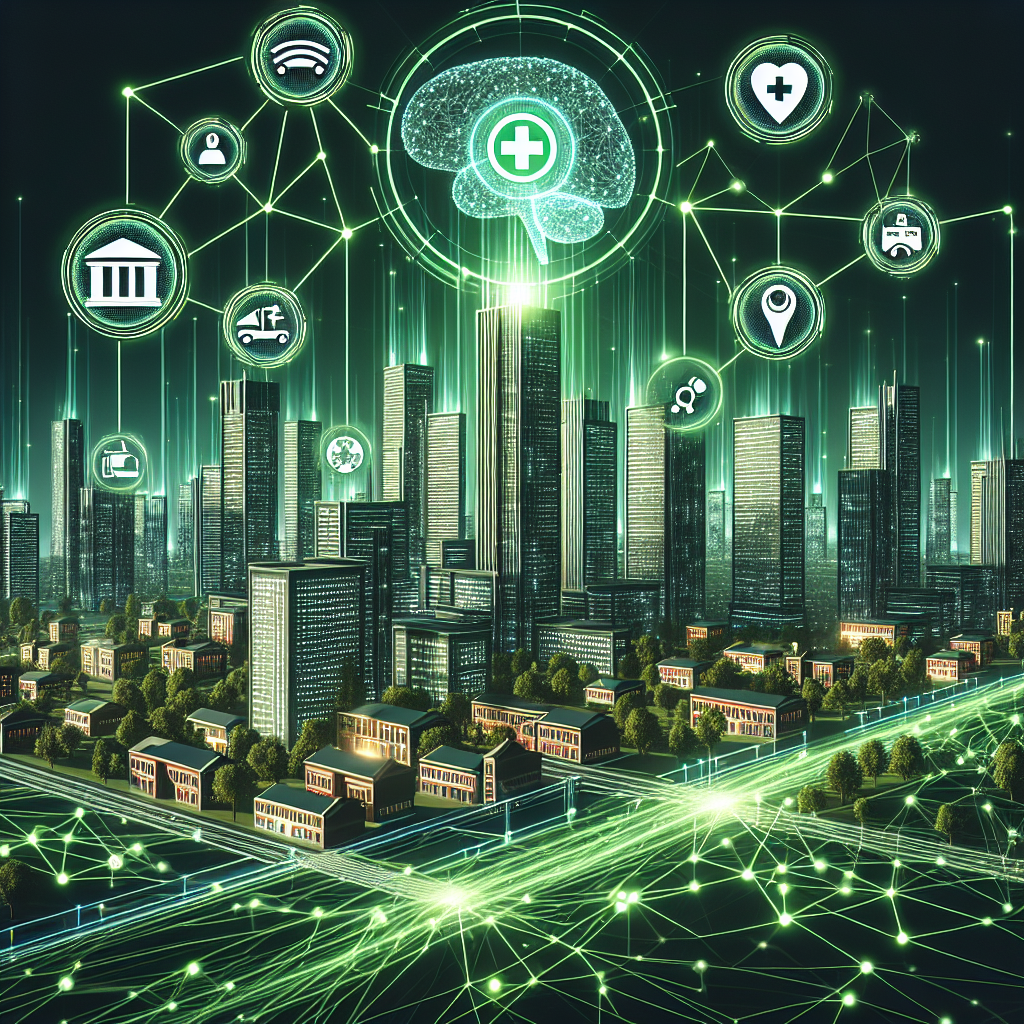Artificial Intelligence (AI) is revolutionizing government services in ways that were once thought to be science fiction. From enhancing public safety to improving citizen engagement, AI is changing the way governments operate and deliver services to their citizens. In this article, we will explore the various ways in which AI is transforming government services and what the future holds for this technology.
1. Enhancing Public Safety
One of the most significant ways in which AI is revolutionizing government services is through enhancing public safety. AI-powered tools are being used to analyze large amounts of data to detect patterns and trends that can help prevent crimes and identify potential threats. For example, predictive policing algorithms can help law enforcement agencies allocate resources more effectively by identifying areas that are at higher risk of crime.
AI is also being used to improve emergency response times. Chatbots and virtual assistants can provide citizens with real-time information during emergencies, helping them navigate through crisis situations more effectively. Additionally, AI-powered drones can be used for surveillance and reconnaissance during natural disasters or other emergencies, providing first responders with valuable information to coordinate their efforts.
2. Improving Citizen Engagement
AI is also revolutionizing government services by improving citizen engagement. Chatbots and virtual assistants are being used to provide citizens with instant access to information and services, reducing the need for long wait times or multiple phone calls to government agencies. These AI-powered tools can assist citizens with a variety of tasks, such as applying for permits, paying bills, or accessing government services.
Furthermore, AI is being used to analyze citizen feedback and sentiment on social media and other platforms, allowing government agencies to better understand the needs and preferences of their constituents. This data can help governments tailor their services and policies to better meet the needs of their citizens, ultimately improving overall satisfaction and trust in government.
3. Streamlining Administrative Processes
AI is also revolutionizing government services by streamlining administrative processes. From automating routine tasks to optimizing resource allocation, AI-powered tools can help government agencies operate more efficiently and effectively. For example, AI can be used to process large volumes of paperwork, such as applications for permits or licenses, in a fraction of the time it would take a human to do so.
Additionally, AI can help government agencies make data-driven decisions by analyzing complex datasets and identifying trends and insights that would be difficult for humans to uncover. This can lead to more informed policy-making and resource allocation, ultimately improving the overall effectiveness of government services.
4. Ensuring Equity and Fairness
AI is also revolutionizing government services by ensuring equity and fairness in decision-making. By analyzing large amounts of data, AI can help identify biases and disparities in government services and policies, allowing agencies to address them proactively. For example, AI-powered tools can help detect patterns of discrimination in hiring practices or identify areas where certain populations are underserved.
Furthermore, AI can help governments make more equitable and fair decisions by removing human biases from the decision-making process. By using algorithms that are designed to be fair and transparent, governments can ensure that their policies and services are accessible to all citizens, regardless of their background or circumstances.
5. The Future of AI in Government Services
The future of AI in government services is bright, with new opportunities and challenges on the horizon. As AI technology continues to evolve, governments will have the opportunity to leverage this technology to improve service delivery, increase efficiency, and enhance citizen engagement. However, with these opportunities come challenges, such as ensuring data privacy and security, addressing concerns about algorithmic bias, and building public trust in AI-powered government services.
To address these challenges, governments will need to invest in building the necessary infrastructure and capabilities to support AI-powered services. This includes developing robust data governance frameworks, implementing ethical guidelines for AI use, and investing in training and reskilling programs for government employees. By taking these steps, governments can harness the full potential of AI to revolutionize government services and improve the lives of their citizens.
FAQs
Q: How is AI being used in government services?
A: AI is being used in government services in a variety of ways, including enhancing public safety, improving citizen engagement, streamlining administrative processes, and ensuring equity and fairness in decision-making.
Q: What are some examples of AI-powered tools in government services?
A: Some examples of AI-powered tools in government services include predictive policing algorithms, chatbots and virtual assistants for citizen engagement, automated document processing systems, and algorithms for detecting biases in government policies.
Q: What are the benefits of using AI in government services?
A: The benefits of using AI in government services include increased efficiency, improved service delivery, better decision-making, enhanced citizen engagement, and ensuring equity and fairness in government policies and services.
Q: What are some challenges of using AI in government services?
A: Some challenges of using AI in government services include data privacy and security concerns, algorithmic bias, lack of transparency in decision-making, and building public trust in AI-powered government services.
Q: What does the future hold for AI in government services?
A: The future of AI in government services is bright, with new opportunities and challenges on the horizon. Governments will need to invest in building the necessary infrastructure and capabilities to support AI-powered services, while also addressing concerns about data privacy, algorithmic bias, and public trust.

